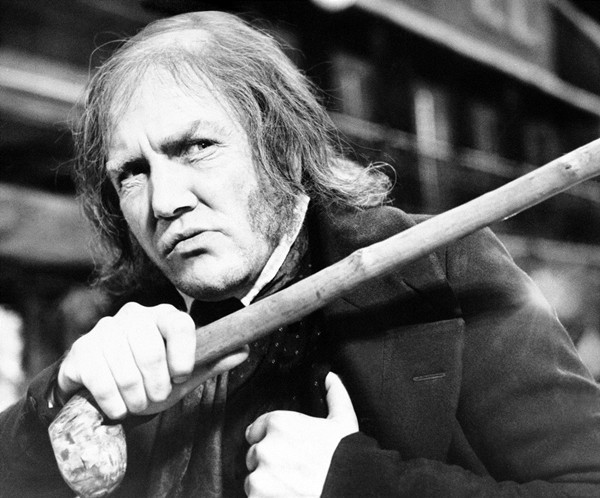
London (AP) — Albert Finney, one of the most respected and versatile actors of his generation and the star of films as diverse as “Tom Jones” and “Skyfall,” died last week. He was 82.
From his early days as a strikingly handsome and magnetic screen presence to his closing acts as a brilliant character actor, Finney was a British treasure known for charismatic work on both stage and screen.
Finney’s family said he “passed away peacefully after a short illness with those closest to him by his side.” He died Thursday, Feb. 7 from a chest infection at the Royal Marsden Hospital in London, a cancer treatment center.
Finney burst to international fame in 1963 in the title role of “Tom Jones,” playing a lusty, humorous rogue who captivated audiences with his charming, devil-may-care antics.
He excelled in many other roles, including “Saturday Night and Sunday Morning”, a 1960 drama that was part of the “angry young man” film trend.
Finney was a rare star who managed to avoid the Hollywood limelight despite more than five decades of worldwide fame. He was known for skipping awards ceremonies, even when he was nominated for an Oscar.
“Tom Jones” gained him the first of five Oscar nominations. Other nominations followed for “Murder on the Orient Express,” ‘’The Dresser,” ‘’Under the Volcano” and “Erin Brockovich.” Each time he fell short.
In later years he brought authority to bid-budget and high-grossing action movies, including the James Bond thriller “Skyfall” and two of the Bourne films. He also won hearts as Daddy Warbucks in “Annie.”
He played an array of roles, including Winston Churchill, Pope John Paul II, a southern American lawyer, and an Irish gangster. There was no “Albert Finney”-type character that he returned to again and again.
In one of his final roles, as the gruff Scotsman, Kincade, in “Skyfall,” he shared significant screen time with Daniel Craig as Bond and Judi Dench as M, turning the film’s final scenes into a master class of character acting.
“The world has lost a giant,” Craig said.
Although Finney rarely discussed his personal life, he said in 2012 that he had been treated for kidney cancer for five years.
He also explained why he had not attended the Academy Awards in Los Angeles even when he was nominated for the film world’s top prize.
“It seems silly to go over there and beg for an award,” he said.
The actor also maintained a healthy skepticism about the British establishment and turned down a knighthood when it was offered, declining to become Sir Albert.
“Maybe people in America think being a ‘Sir’ is a big deal,” he said. “But I think we should all be misters together. I think the ‘Sir’ thing slightly perpetuates one of our diseases in England, which is snobbery.”
Instead of cashing in by taking lucrative film roles after “Tom Jones,” Finney took a long sabbatical, traveling slowly through the United States, Mexico and the Pacific islands, then returned to the London stage to act in Shakespeare productions and other plays. He won wide acclaim before returning to film in 1967 to co-star with Audrey Hepburn in “Two for the Road.”
This was to be a familiar pattern, with Finney alternating between film work and stage productions in London and New York.
Finney tackled Charles Dickens in “Scrooge” in 1970, then played Agatha Christie’s sophisticated sleuth Hercule Poirot in “Murder on the Orient Express” — earning his second Best Actor nomination— and even played a werewolf hunter in the cult film “Wolfen” in 1981.
Even during his extraordinary run of great roles, Finney’s life was not chronicled in People or other magazines, although the British press was fascinated with his marriage to the sultry French film star Anouk Aimee.
He played in a series of smaller, independent films for a number of years before returning to prominence in 2000 as a southern lawyer in the film “Erin Brockovich,” which starred Julia Roberts. The film helped introduce Finney to a new generation of moviegoers, and the chemistry between the aging lawyer and his young, aggressive assistant earned him yet another Oscar nomination, this time for Best Supporting Actor.
His work also helped propel Roberts to her first Best Actress Oscar. Still, Finney declined to attend the Academy Awards ceremony — possibly damaging his chances at future wins by snubbing Hollywood’s elite.
 |
 |





